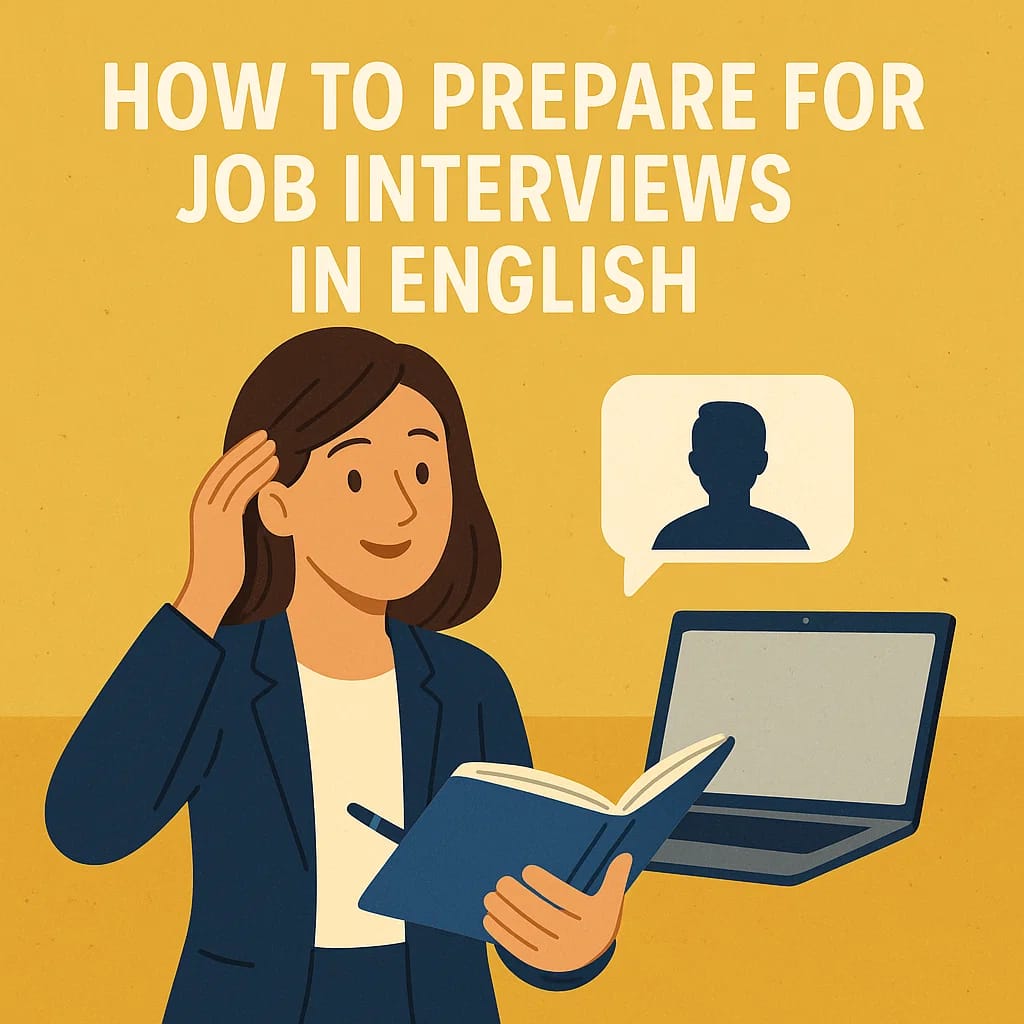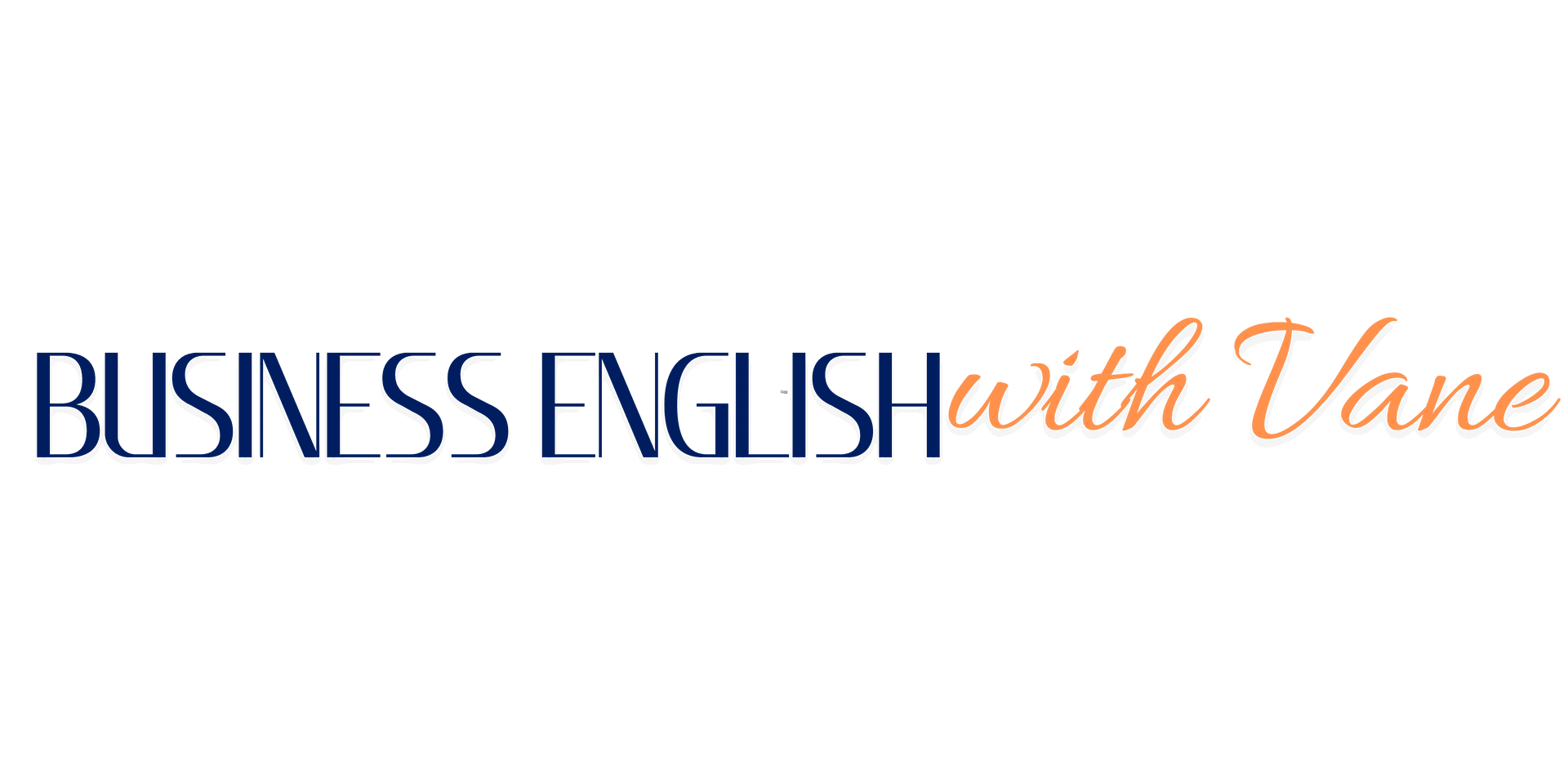
Introduction
Were you invited to a job interview in English and your hands are already sweating? Don’t worry. You don’t need to be a native speaker to succeed—but you do need a strategic plan. In this article, you’ll find the key steps to get ready, common phrases you can practice, and mistakes to avoid if you want to make a great impression.
1. Get to Know the Most Common Questions
Most interviews include standard questions. Getting familiar with them helps you feel more confident and speak more fluently.
Typical questions:
- Tell me about yourself.
- What are your strengths and weaknesses?
- Why do you want to work here?
- Where do you see yourself in five years?
Tip: Prepare short, clear answers in English. Practice them out loud.
You can link this point to the article “How to Negotiate in English Without Sounding Insecure,” since both focus on professional speaking skills.
2. Prepare a Flexible Introduction Script
Your personal introduction is key. Many people freeze with the famous “Tell me about yourself” because they haven’t practiced. It’s not about telling your whole life story—just showing who you are as a professional.
Simple structure:
- Your name, experience, and current role
- A key achievement or skill
- Why you’re interested in the position
Example:
«Hi, my name is Selin, I’ve been working in digital marketing for 5 years. I specialize in SEO and content creation. I’m excited about this role because I want to expand my skills in an international environment.»
3. Useful Phrases to Sound Professional
To buy time while thinking:
- That’s a great question, let me think for a moment.
- I’d say…
- In my experience…
To answer clearly:
- One example of that would be…
- I handled a similar situation by…
- I’m confident I can contribute by…
These expressions are key to sounding natural and confident.
4. Common Mistakes (Avoid Them!)
- Not preparing technical vocabulary: If you’re an engineer, doctor, designer, or programmer, prepare a glossary with keywords in English related to your field.
- Literal translations: Saying “I have 30 years” instead of “I am 30 years old” is a classic mistake.
- Saying you’re «intermediate level» without showing it: Show it in action. Talking briefly about a project or achievement is better than just labeling your level.
5. Practice with someone (or AI)
Don’t rely only on your thoughts. Speak out loud, record yourself, or do mock interviews with a friend or tutor. You can even use AI tools to practice answers and get automatic feedback.
Bonus: If I’m your English coach, ask me for a special session just to simulate interviews. It’s an investment that pays off.
6. Cultural preparation
Learning English isn’t just about translating words—it’s also about understanding the business culture. In countries like the US or the UK, confidence, clarity, and honesty are valued. Don’t be afraid to talk about your achievements, always with humility.
Conclusion
Having a job interview in English doesn’t have to be a nightmare. With strategic preparation, useful vocabulary, and real practice, you can become a confident and convincing candidate. Remember: they’re not expecting perfection—they’re expecting clear, professional communication.
If you’re improving your English to grow professionally, you might also like this article:
Is it Possible to Learn Business English in 3 Months?
